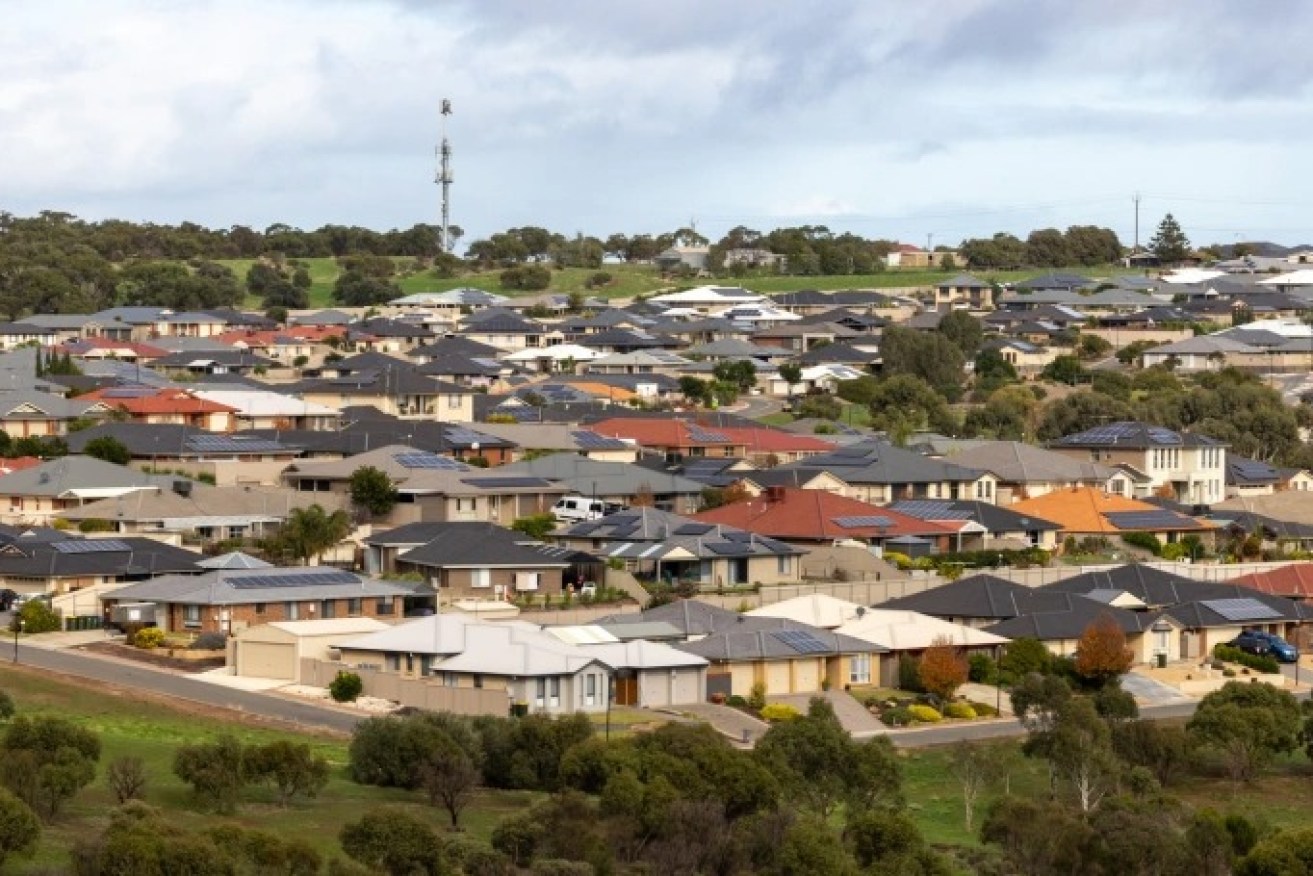Reprieve for mortgage holders as interest rate unchanged
The Reserve Bank has left interest rates on hold at 4.1 per cent for July, sparing mortgage holders a 13th rise since last May.


Photo: Tony Lewis/InDaily
The Reserve Bank board board hiked interest rates last month to 4.10 per cent, with regular increases aimed at reining in inflation having added around $13,000 to annual repayments on a $500,000 home loan.
RBA Governor Philip Lowe said in a statement on Tuesday afternoon that higher interest rates were working to establish “a more sustainable balance” between supply and demand, with the board holding rates steady in light of “uncertainty surrounding the economic outlook”.
“This will provide some time to assess the impact of the increase in interest rates to date and the economic outlook,” Lowe said.
“The decision to hold interest rates steady this month provides the Board with more time to assess the state of the economy and the economic outlook and associated risks.”
Lowe said that inflation had passed its peak in Australia, and that the monthly CPI indicator for May showed a further decline.
“High inflation makes life difficult for everyone and damages the functioning of the economy. It erodes the value of savings, hurts household budgets, makes it harder for businesses to plan and invest, and worsens income inequality,” he said.
“And if high inflation were to become entrenched in people’s expectations, it would be very costly to reduce later, involving even higher interest rates and a larger rise in unemployment.
“For these reasons, the Board’s priority is to return inflation to target within a reasonable timeframe.”
The RBA still expects the economy to grow as inflation returns to the 2-3 per cent target range, but noted “the path to achieving this balance is a narrow one”.
“A significant source of uncertainty continues to be the outlook for household consumption. The combination of higher interest rates and cost-of-living pressures is leading to a substantial slowing in household spending,” Lowe said.
“While housing prices are rising again and some households have substantial savings buffers, others are experiencing a painful squeeze on their finances. There are also uncertainties regarding the global economy, which is expected to grow at a below-average rate over the next couple of years.”
The news comes as Roy Morgan today released new data demonstrating consumer confidence slipped 0.8 points to 74.1 – meaning the index has now spent 18 straight weeks below the mark of 80.
“The last time Consumer Confidence spent at least eighteen weeks under 80 was during the 1990-91 recession when the index was conducted on a monthly basis,” Roy Morgan said.
In South Australia and Western Australia, consumer confidence actually rose, but the national average was offset by falls in New South Wales, Queensland and Victoria.
“The four-week average level of confidence was the second-worst result in the last 30 years, second only to the first four weeks of the pandemic,” ANZ senior economist Adelaide Timbrell said.
“Both ‘current’ and ‘future financial conditions’ remain persistently weak as inflation expectations hit their highest four-week average of 2023.
“Those paying off their own homes continue to have the lowest confidence, 6 points below the average for all survey participants.”
Risks remain for housing sector
CoreLogic research director Tim Lawless said downside risks remain for the housing sector despite the RBA’s pause on interest rate hikes.
Lawless said the pause “kept the door open for a rate hike in August”, and that the June quarter inflation figures would be critical in determining whether there was more pain ahead for borrowers.
“Currently high interest rates and the potential for a hike in August could weigh further on consumer sentiment, which is already around GFC lows. Historically, consumer sentiment and housing market sales have been closely correlated,” Lawless said.
“Housing activity could be further impacted if credit becomes less available. The average variable mortgage rate for new owner occupier loans is approximately 5.9 per cent. With a three-percentage point serviceability buffer in place, new borrowers will be assessed to repay their loan at a mortgage rate close to 9 per cent.
“The combination of high cost of living pressures, negative real income growth and the high cost of debt have made it hard for borrowers to obtain credit approval, especially with lenders less willing to lend on high debt-to-income ratios, high loan-to-income ratios or on smaller deposits.”
He added that higher housing prices could keep inflation higher for longer as homeowners “feel wealthier and more willing to spend”.
Further, more borrowers are likely to fall behind on mortgage repayments, but low unemployment rates “should help to prevent a material blowout in mortgage arrears”.
“Whether the current interest rate setting and the potential for a further hike in August is enough to push the housing market into a double-dip downturn remains uncertain,” Lawless said.




